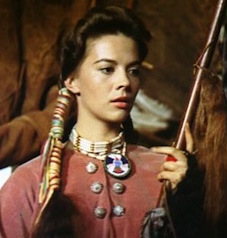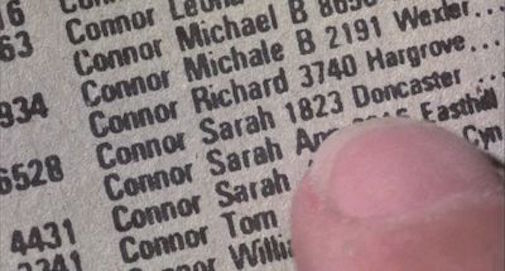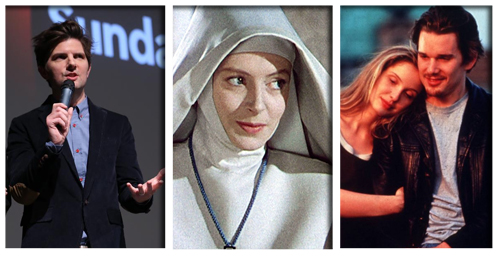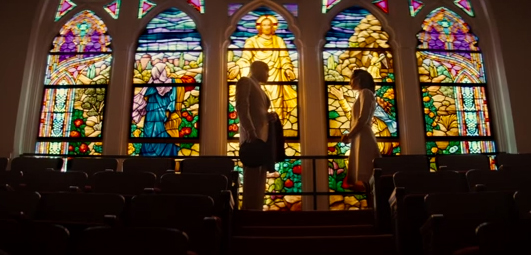On This Day: Marilyn Mania and Sarah Connor x 3
 Thursday, May 19, 2016 at 9:00AM
Thursday, May 19, 2016 at 9:00AM  May your 19th be beautiful.
May your 19th be beautiful.
On this day in history as it relates to the movies...
1536 Anne Boleyn is beheaded. Her tragedy is later reenacted by hundreds of actresses on tv, stage and film including Natalie Portman, Vanessa Redgrave, Helena Bonham Carter, and Genevieve Bujold (Oscar nomination).
1836 Cynthia Ann Parker is kidnapped in Texas during an Indian raid after her family is slaughtered. That's a tough break but not many people get to live on in history through multiple classics albeit under pseudonyms like "Debbie Edwards" (Natalie Wood in The Searchers) and "Stands With Fist" (Mary McDonnell in Dances With Wolves).
1925 Malcolm X is born. 67 years later Denzel Washington wins his second Oscar playing him (Shut up! This is our preferred version of history because Al Pacino in Scent of a Woman. Ugh, really?)
1941 Nora Ephron is born spewing witticisms.
1958 Attack of the 50 Foot Woman is released in movie theaters.
1962 Marilyn Monroe, who looms larger than 50 Feet in the American consciousness, sings happy birthday to President John F Kennedy
1978 Thank God It's Friday released. Out-discoed in collective disco-movie memories by Can't Stop the Music, two years later.
1982 Rebecca Hall is born. Remains underappreciated 34 years later

1984 It is a very very bad day to be named "Sarah Connor" in Los Angeles. Unless you're unlisted. [src]
1989 Legendary bad movie Road House opens in theaters
1992 Sam Smith is born. 24 years later he tortures global audiences with an off-key rendition of a song no one likes and Hollywood hands him the Oscar -anything to make him stop.
1999 Star Wars: the Phantom Menace opens in theaters which is something like discovering a razor blade in your Halloween candy. Jar Jar Binks is the razor blade. Nostalgia is the candy.
2017 Baywatch: The Movie opens. God help us all.
and finally...
![]()
2154 Jake Sully will arrive in his wheelchair on Pandora and meet his Avatar. Just in time for James Cameron to be cryogenically unfrozen and announce that he's starting production on Avatar 2 and Avatar 3. For real this time, promise.




